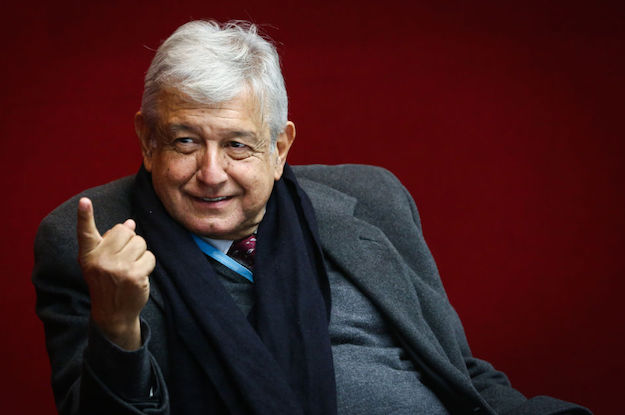“Anybody who tells you they know who will win is misinformed,” a Mexican political analyst recently told me in a debate about next year’s presidential elections. In a scenario where only 2 percent of Mexicans trust political parties and only 4 percent believe the country is on the right track, she said, anything can happen.
The heated debate about campaign finance is just one sign of growing rage in the country after a string of corruption scandals. Referring to the face-off between populist Andrés Manuel López Obrador and establishment candidates, she sighed, “we are between the uncertainty of a messiah and the certainty of the kleptocrats.”
This description matches, with only slight alterations, the situation in several of the 14 countries that will head to the polls in the next two years. Brazil, Chile, Colombia, Costa Rica, Honduras, Paraguay, Mexico and Venezuela will organize presidential elections in the next 18 months; Argentina, Bolivia, El Salvador, Guatemala, Panama and Uruguay will do so 2019. In Colombia, for example, where political parties face a legitimacy crisis, there are around 30 presidential candidates, most of whom will run as independents, and even seasoned observers confess it is impossible to make any serious predictions.
Only one thing, however, seems certain: A mix of low commodity prices (traditionally leading to low growth, low approval ratings of the incumbent, and low public tolerance with corruption) and diminished trust in the political class and democracy itself are likely to make the upcoming electoral cycle in Latin America one of profound change rather than continuity. Of all the elections taking place in 2018, only Honduras’ President Juan Orlando Hernández (under constitutionally controversial circumstances) and Venezuela’s President Nicolás Maduro (in a vote that will likely not be free) can expect to remain in power.
While change is not a bad thing per se – in fact, political elites badly need a breath of fresh air – there are reasons to worry that broad discontent with politics in general will facilitate the rise of populist outsiders, several of whom have laid out authoritarian approaches and reject the slow and often frustrating negotiations that are inherent to checks and balances. In Colombia, many fear a populist occupying the Casa de Nariño next year – for example, as a result of a run-off between far-leftist Gustavo Petro and a right-wing supporter of former President Álvaro Uribe.
In Brazil, the mantra frequently articulated by government officials that “the institutions are working” no longer convinces everyone. A growing number of analysts describe the so-called Lava Jato corruption investigations, led by independent and fearless judges, not as the rule but as the exception, and increasingly wonder whether the political elite is capable of correcting its mistakes. None of the major parties – the governing PMDB, the center-right PSDB and Workers’ Party (PT) – have systematically expelled wrongdoers and attempted to start over with a clean slate. All three parties are led by politicians who have held high office for years, if not decades.
It is thus no surprise that recent polls show Jair Bolsonaro in second place. The presidential contender and extreme-right former military officer has proposals similar to those of Philippine President Rodrigo Duterte. The fact that the only candidate ahead of him in the polls, former President Luiz Inácio Lula da Silva, is facing corruption charges and will most likely be barred from running has caused remarkably little alarm in Brazil so far. Many expect the radical law-and-order candidate Bolsonaro, who lacks even a basic understanding of economics, to self-destruct in the coming months. Considering the result of the 2016 U.S. presidential election, that seems dangerously naïve.
As mainstream parties in several countries seem out of tune with the electorate’s desire for change, successful populist candidates will pose significant challenges to checks and balances. The key question will be to what extent institutions are able to constrain the populist and authoritarian instincts of new leaders.
The United States can be seen as a positive example: So far, Congress, the courts and the government bureaucracy have been relatively successful at containing President Donald Trump’s strongman instincts. That has been made easier by the fact that Trump possesses no coherent ideology or, for that matter, interest in governing. He is no match for the far more sophisticated Hugo Chávez (or Evo Morales, or Alberto Fujimori, for that matter), all of whom from their first day in power worked to dismantle checks and balances, creating a so-called “high-stakes constitution,” which concentrates power in the executive.
Wherever populists win in the next two years in Latin America, it will be up to judges, journalists, political party leaders, non-governmental organizations, academics and social movements to resist and defend democracy.









